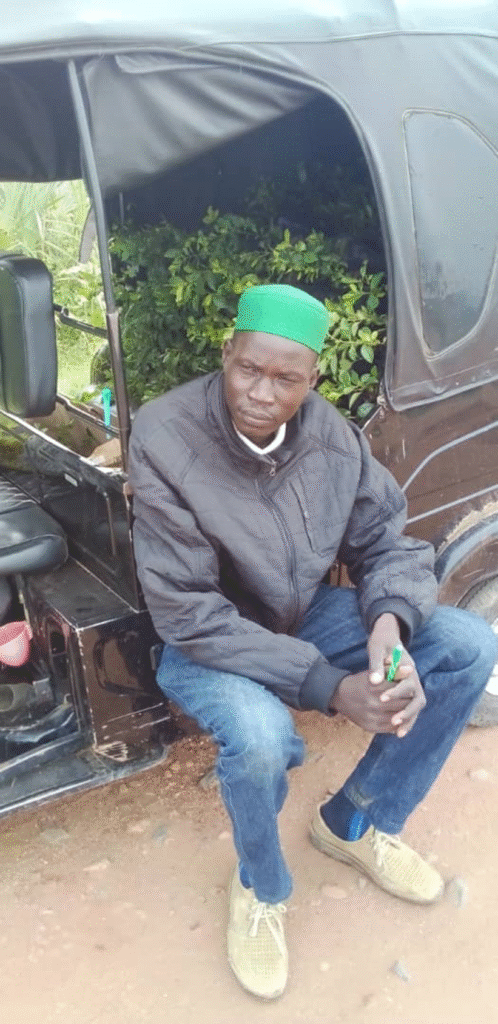South Sudan's English Daily Newspaper
"We Dare where others fear"

By Awan Achiek
A local entrepreneur has created steady job opportunities for seven young people through a tree planting initiative, providing them with daily earnings from casual work. The project not only supports livelihoods but also contributes to environmental restoration, demonstrating that business can thrive alongside nature.
Garang Maguet Garang, a 34-year-old agriculturalist from Nkumba University in Uganda and the founder of Grand Resource Farm, an agroforestry enterprise, explained that his team has been planting trees as a business while also creating job opportunities for young people.
“We have some youths who are planting trees, others who transport them, and those who collect soil from the stream,” Garang told the Dawn in an exclusive interview.
He mentioned that they plant trees in schools, churches, and homes across Juba city.
“My clients are mainly schools because they have learned the importance of trees,” he said.
“Some of the schools now use these trees for practical purposes, as our country has been lacking adequate practices.”
An environmental activist noted that, apart from creating opportunities for young people, the initiative is also a profit-making enterprise.
“Sometimes I earn income that sustains my family, and some of the youth working with us are students. They use some of the money for transport to facilitate their studies,” he said.
The enterprise has created job opportunities for seven young people who earn daily from casual work.
“Our earnings depend on the work we have at hand. The more projects we have, the more payment we receive,” he explained.
Garang stated that they primarily plant fruit and ornamental trees.
“Most people in Juba focus mainly on fruit and ornamental species, but we may explore other types in the future.”
He has planted over 500 different types of trees, including umbrella trees, ornamental plants, and fruit trees.
“We are roughly at 500 trees. In 2022, we experienced a lot of planting, but due to economic hardships, most people prefer to engage in other activities rather than planting trees.”
He noted that the economic crisis is affecting the business, as the price of compound seedlings has risen to 150,000 South Sudanese Pounds.
“Many people are not planting trees, not because they don’t want to, but due to economic hardship. They prefer to buy essentials rather than trees.”

He mentioned they charge 50,000 SSP per seedling.
“If we are to plant everything, we need to fence the area, and buying fencing materials is very expensive, apart from the labour costs, which we can manage,” he said.
They are planning to set up a nursery bed to supply the market with seedlings.
“Our main aim now, our biggest plan, is to have our own seedling production. Once we establish more nursery beds,” he said
“we can sell our seedlings, which will generate significant income and provide employment for many people.”
He encouraged young people to stop relying on white-collar jobs and become job creators.
“My message to the youth is to stay focused and continue working on your plans. Ideas do not come fully formed,” he said.
“Once you start, keep developing them. In the end, you will earn a living from the initiative you began. However, there will be challenges.”
David Kuai, a part-time employee at Grand Resource, has developed skills in tree planting.
“When I first started working on the farm, it was mainly a recreational activity, but from there, I learned more about the tree planting process,” Kuai explained.
“This experience allowed me to gain a wealth of knowledge. I also interacted with various customers, and we developed a strong connection.”
He mentioned that he typically earns between $60 and $80, depending on the project.
“We receive funding for various types of projects. When a project doesn’t have significant funding, I tend to earn less than $80. Sometimes, I make $60, while other projects can pay as much as $100,” he said.
“I have benefited greatly, and by the end of the month, I earn a decent amount. I notice that many young people today prefer to avoid work, often choosing to play around or loiter instead.”
He stressed the importance of equipping young people with skills to help them become self-sufficient.
“My advice is to empower yourselves through capacity building and training. You can learn how to invest your time wisely. I began working in 2018 with various organisations,” he said.
“I’ve come to realise that if I spend my time playing games and engaging in other activities with my peers, there will come a time when I grow older and won’t have the energy or ability to do anything.”
The Grand Resource Farm agroforestry enterprise plays a crucial role in combating climate change while creating jobs for young people in the country.
Established in 2022, the farm focuses on selling and planting seedlings.



